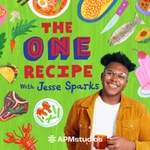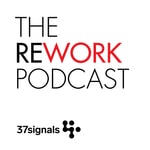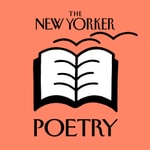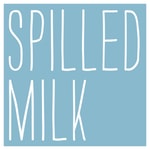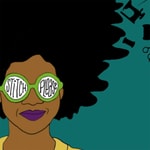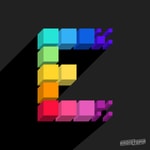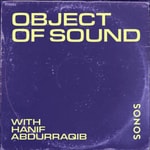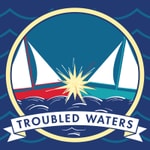Poetry Unbound – Details, episodes & analysis
Podcast details
Technical and general information from the podcast's RSS feed.
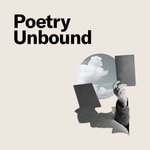
Poetry Unbound
On Being Studios
Frequency: 1 episode/10d. Total Eps: 199

Recent rankings
Latest chart positions across Apple Podcasts and Spotify rankings.
Apple Podcasts
🇨🇦 Canada - books
29/07/2025#19🇨🇦 Canada - arts
29/07/2025#57🇬🇧 Great Britain - books
29/07/2025#28🇬🇧 Great Britain - arts
29/07/2025#88🇺🇸 USA - books
29/07/2025#15🇺🇸 USA - arts
29/07/2025#44🇨🇦 Canada - books
28/07/2025#42🇬🇧 Great Britain - books
28/07/2025#24🇬🇧 Great Britain - arts
28/07/2025#79🇺🇸 USA - books
28/07/2025#14
Spotify
No recent rankings available
Shared links between episodes and podcasts
Links found in episode descriptions and other podcasts that share them.
See allRSS feed quality and score
Technical evaluation of the podcast's RSS feed quality and structure.
See allScore global : 83%
Publication history
Monthly episode publishing history over the past years.
Closing: Poems as Teachers (ft. Kai Cheng Thom) | Ep 7
Season 8
vendredi 17 mai 2024 • Duration 12:42
In this concluding episode of "Poems as Teachers," our special miniseries on conflict and the human condition, host Pádraig Ó Tuama says the poems discussed in this offering are a different kind of teacher: “not as teachers that give us rules to follow — more so teachers that share something of their own intuition.” And for a final reflection, he offers Kai Cheng Thom’s “trauma is not sacred,” which speaks directly, fiercely, and lovingly to the pain, scars, and violence that we humans carry and inflict upon one another.
Kai Cheng Thom is a writer, performance artist, and community healer. Kai Cheng is the author of the novel Fierce Femmes and Notorious Liars: A Dangerous Trans Girl's Confabulous Memoir; the essay collection I Hope We Choose Love: A Trans Girl's Notes at the End of the World (an American Library Association Stonewall Honor Book); the poetry collection a place called No Homeland (an American Library Association Stonewall Honor Book); and the children's books From the Stars in the Sky to the Fish in the Sea (illustrated by Kai Yun Ching and Wai-Yant Li) and For Laika, the Dog Who Learned the Names of the Stars (illustrated by Kai Yun Ching). She won the Writers' Trust of Canada's Dayne Ogilvie Prize for LGBTQ2S+ Emerging Writers in 2017.
Find the transcript for this show at onbeing.org.
This is the final episode of "Poems as Teachers," a special seven-part miniseries on conflict and the human condition.
We’re pleased to offer Kai’s poem, and invite you to read Pádraig’s weekly Poetry Unbound Substack, read the Poetry Unbound book, or listen back to all our episodes.
Yehuda Amichai — Poems as Teachers | Ep 6
Season 8
vendredi 17 mai 2024 • Duration 14:04
Being right may feel good, but what human price do we pay for this feeling of rightness? Yehuda Amichai’s poem “The Place Where We Are Right,” translated by Stephen Mitchell, asks us to answer this question, consider how doubt and love might expand and enrich our perspective, and reflect upon the buried and not-so-buried ruins of past conflicts, arguments, and wounds that still call for our attention.
Yehuda Amichai was an Israeli poet and novelist born in Würzburg, Germany, and he lived from 1924 to 2000. His poetry is collected in numerous works, including Open Closed Open, The Selected Poetry of Yehuda Amichai, and The Poetry of Yehuda Amichai.
Stephen Mitchell is an author, poet, and translator. His works of translation include The Selected Poetry of Rainer Maria Rilke, Gilgamesh, and Full Woman, Fleshly Apple, Hot Moon: Selected Poems of Pablo Neruda. Mitchell translated The Selected Poetry of Yehuda Amichai with Chana Bloch.
Find the transcript for this show at onbeing.org.
This is the sixth episode of "Poems as Teachers," a special seven-part miniseries on conflict and the human condition.
We’re pleased to offer Yehuda’s poem, and invite you to read Pádraig’s weekly Poetry Unbound Substack, read the Poetry Unbound book, or listen back to all our episodes.
Michael Klein — Swale
Season 8 · Episode 13
lundi 12 février 2024 • Duration 14:02
A horse race from the 1980s may not seem like the obvious inspiration for a poem that celebrates so many of the things that make our lives worth living — good company (human and animal), good books, good food, and honest work — and that is just part of the surprise, delight, and surging joy of Michael Klein’s “Swale.”
Michael Klein is a two-time winner of the Lambda Literary Award for poetry and is the author of five books of poetry and two memoirs. His work has appeared in many places, including Poetry, Tin House, The Paris Review, and Bennington Review. His newest book is The Early Minutes of Without: New & Selected Poems (Word Works, 2023).
Find the transcript for this show at onbeing.org.
We’re pleased to offer Michael Klein’s poem, and invite you to read Pádraig’s weekly Poetry Unbound Substack, read the Poetry Unbound book, or listen back to all our episodes.
Aria Aber — The Only Cab Service of Farmington, Maine
Season 4 · Episode 20
vendredi 3 décembre 2021 • Duration 18:25
In a taxi, a poet speaks to the driver. It’s the only taxi in town. He mentions travel, mentions Afghanistan, that he was there with the forces. She’s from Afghanistan and the conversation continues — awkward; complicated; him trying to say good things, but failing; her feeling like she should rescue him, but deciding not to. War is upended by the point of view of a person in whose country the war was fought. Underneath the action of the poem is a question about whether conversation is possible, and an appreciation for silence.
Aria Aber is based in Oakland, CA. Her poems are forthcoming or have appeared in The New Yorker, Poetry Magazine, Kenyon Review, The Poetry Review and elsewhere. She is the author of Hard Damage, which won the Prairie Schooner Book Prize in Poetry and a Whiting Award. She is currently a Stegner Fellow in Poetry at Stanford University.
Find the transcript for this show at onbeing.org.
Donika Kelly — In the Chapel of St. Mary’s
Season 4 · Episode 19
lundi 29 novembre 2021 • Duration 14:57
Why do empty places sometimes lend themselves to reflection or contemplation? In this poem, a poet — describing herself as a nonbeliever — goes into a chapel to sit. In the corner there are some girls talking, there are stained glass windows, and the poet is at once at home in herself and far from the woman she loves. The high emptiness of the church seems to give a resting place for the emptiness she’s feeling. While there’s no resolution, the larger empty space offers a holding place for the poet.
Donika Kelly is the author of The Renunciations and Bestiary, the winner of the Cave Canem Poetry Prize, a Hurston/Wright Legacy Award for Poetry, and the Kate Tufts Discovery Award. A Cave Canem graduate fellow and member of the collective Poets at the End of the World, Donika has also received a Lannan Residency Fellowship, and a summer workshop fellowship from the Fine Arts Work Center. Her poems have been published in The New Yorker, The Atlantic online, The Paris Review, and Foglifter. She currently lives in Iowa City and is an Assistant Professor at the University of Iowa, where she teaches creative writing.
Find the transcript for this show at onbeing.org.
Linda Hogan — Song for the Turtles of the Gulf
Season 4 · Episode 18
vendredi 26 novembre 2021 • Duration 15:48
In a poem called a “Song,” Linda Hogan crafts a song for turtles and other creatures killed through oil spills in the gulf. At once a praise song for the beauty of the sea, the earth, and its animals, this song also functions as a lament: for the history erased by industrial practices; for the lack of respect and love for living breathing other-than-human lives; for plastic and the plastic containers used to hold the body of a dead sea turtle. The poem veers towards a prayer, too, begging forgiveness for being “thrown off true.”
Linda Hogan is a Chickasaw novelist, essayist, and environmentalist. She earned an undergraduate degree from the University of Colorado-Colorado Springs and an MA in English and creative writing from the University of Colorado-Boulder. Her books of poetry include Dark. Sweet., The Book of Medicines, Seeing Through the Sun, and many more.
Find the transcript for this show at onbeing.org.
Lory Bedikian — On the Way to Oshagan
Season 4 · Episode 17
lundi 22 novembre 2021 • Duration 17:36
The exile’s return to the motherland is the theme around which Lory Bedikian’s poem “On the Way to Oshagan” circles. She, a proud Armenian, stops by a roadside stall on a trip to her home country; and is immediately understood as an Amerigatzi, even though she’s speaking Armenian, not English. The poem could end with this awkward exchange, but instead pushes through, and a connection occurs between the returned-departed and the never-departed: there’s a gift, an invitation, and a bridge across exile.
Lory Bedikian received her BA from UCLA with an emphasis in Creative Writing and Poetry. She earned her MFA in Poetry from the University of Oregon, where she received the Dan Kimble First Year Teaching Award for Poetry. Bedikian's The Book of Lamenting won the 2010 Philip Levine Prize in Poetry. She currently teaches poetry workshops in Los Angeles.
Find the transcript for this show at onbeing.org.
Nico Amador — Flower Wars
Season 4 · Episode 16
vendredi 19 novembre 2021 • Duration 12:24
Telling some of the story of the Flower Wars of the Aztec era, Nico Amador’s poem pits wars against creation. In a poem that begins by recalling creation myths from multiple cultures, he then poses questions about why: Why would people sacrifice their own people to keep a god happy? Why would any god benefit from people’s deaths? Evoking how the Flower Wars contributed to the Aztec downfall, this poem also wonders about wars today: Who benefits from a war? Who decides who should die? Why?
Nico Amador has been published in a number of journals and anthologies. His chapbook, Flower Wars, was selected as the winner of the Anzaldúa Poetry Prize and was published by Newfound Press in 2017. He is a grant recipient of the Vermont Arts Council, an alumni of the Lambda Literary Foundation's Writers Retreat and an MFA candidate at Bennington College.
Find the transcript for this show at onbeing.org.
Darrel Alejandro Holnes — Amending Wall
Season 4 · Episode 15
lundi 15 novembre 2021 • Duration 17:08
In a poem that directly addresses Robert Frost’s “Mending Wall,” Darrel Alejandro Holnes asks questions: who gets to build walls, or guard borders?. Do good fences really make good neighbors? Taking a poem that’s been part of an American imagination both of poetry and of citizenship, Darrel offers a critique that places contemporary migrant experiences at the center, challenging contemporary ideas of territory, conquest, and expansion.
Darrel Alejandro Holnes is the author of Stepmotherland & Migrant Psalms. Holnes is an Afro-Panamanian American writer, performer, and educator. His writing has been published in English, Spanish, and French in literary journals, anthologies, and other books worldwide and online. He also writes for the stage. Most of his writing centers on love, family, race, immigration, and joy. He works as a college professor in New York City, NY.
Find the transcript for this show at onbeing.org.
Elizabeth Bishop — Sestina
Season 4 · Episode 14
vendredi 12 novembre 2021 • Duration 15:33
This sestina poem considers a scene from Elizabeth Bishop’s own childhood through the sounds of six repeating words: house, grandmother, child, stove, almanac, tears. These six words repeat — in different order — as the final words of the poem’s lines, creating a kind of contemplation on how those repeated words informed her childhood: a childhood marked by loss, displacement, and a kind grandmother. “Time to plant tears” the poem states, in one of its most famous lines, as if the scene recalled has information about the future.
Elizabeth Bishop was an American poet and writer. She served as Consultant in Poetry to the Library of Congress from 1949 to 1950, was the Pulitzer Prize winner for Poetry in 1956, and won the National Book Award in 1970.
Find the transcript for this show at onbeing.org.
